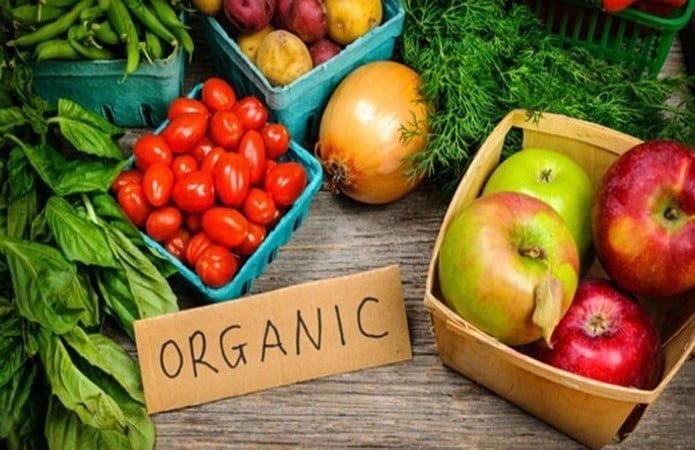Due to its favorable geographic location, as well as favorable conditions for farming, over the past few years, Ukraine has become one of the leading suppliers of organic fruits and vegetables to the markets of Western Europe, occupying, as of the beginning of last year, the 4th place among the supplying countries in EU.
This is stated in the “Research of the Ukrainian Market for Organic Fruit and Vegetable Products-2019“, which was carried out at the initiative of the Ukrainian Fruit and Vegetable Business Development Project (UHBDP) with the participation of specialists from the certification body “Organic Standard,” as well as the educational and consulting project Organic Business School.
As the authors of the study note, currently, Ukrainian exporters of organic fruits and vegetables are actively using the advantages of the Association Agreement between the EU and Ukraine and the Deep and Comprehensive Free Trade Area, which is part of the Agreement.
The research emphasizes that additional control measures over Ukrainian products introduced in the EU in January 2016 do not apply to fruit and berry and vegetable crops, simplifying the EU’s export of fruit and vegetable products. At the same time, the study notes that competition, especially in the developed EU market, is relatively high. “Therefore, Ukrainian exporters need to prepare very carefully for the supply and promotion of their products to this market,” researchers report.
The largest organic markets in the world are concentrated in the USA, Germany, and France. Thus, in percentage terms, the US organic market has a 47% share of the world market, and the EU organic market – 37%.
“These are the areas of export of organic products from Ukraine that can be a priority. Although Ukrainian exporters should also pay attention to countries such as Switzerland, Canada, and Asian countries, particularly the United Arab Emirates, Japan, and China,” authors of the study noted.
The UHBDP also notes that organic vegetables have the largest market share among all categories of organic produce.
In countries such as Switzerland, Austria, Denmark, and Sweden, organic vegetables account for 10% or more total vegetable assortment sales. In comparison, organic fresh carrots and pumpkins account for almost 30% of Germany’s corresponding product segment.
Analyzing the Ukrainian organic fruit and vegetable market, the authors of the study draw attention to the fact that some product categories have an advantage in terms of sales on the external market, and some on the domestic market.
“In particular, Ukrainian producers of organic vegetables sell their products mainly on the domestic market through supermarket chains (Silpo, Auchan, Good Wine, WineTime), small specialized stores (Natur Boutique, Eco Lavka), Internet, direct delivery to end consumers through the organic basket concept, or through a store near the farm. The products are sold fresh. The assortment of fresh organic vegetables on the Ukrainian market includes potatoes, beets, carrots, tomatoes, cherry tomatoes, cucumbers, peppers, onions, garlic, radishes, beans, lettuce, arugula, spinach, Swiss chard, cilantro, dill, basil, eggplant, zucchini, sweet corn, white cabbage, broccoli, kale, Brussels sprouts, cauliflower, Peking cabbage, and Kale cabbage.
Organic fruits, including berries, are sold mainly for export to the EU and Switzerland. Partially, these products can also be found in the domestic market. For example, such products are watermelon, melon, pumpkin, grapes, blueberries, lingonberries, blackberries, raspberries, garden strawberries. These products are sold mainly fresh, although the berries are also sold frozen,” researchers reported.
It is noted that fresh organic apples supplied from Ukraine to foreign markets are intended only for further processing in the country of export. “The decision on whether to export fresh apple or apple concentrate from Ukraine is made depending on the market situation and the cost of logistics,” the authors of the study explained.
It should be noted that, in addition to cultivated organic fruit and berry products (raspberries, garden strawberries, chokeberries, apples), Ukrainian operators also sell wild plants: blueberries, blackberries, lingonberries, cranberries, elderberries, chokeberries, blackthorns, rose hips, sea buckthorn, mountain ash, wild strawberry, apple, and nuts.
“In total, about 20 Ukrainian operators export only wild berries. At the same time, 3 Ukrainian operators export walnut kernels, but only obtained as products of wild plants. The export of nuts grown in the fields of farms is not yet conducted. The main reason for the absence of such shipments is the young age of the walnut plantations and insufficient volumes for export,” the study explains.
The study also states that in 2018, 8 exporters supplied organic raspberries to EU markets, grown by 28 Ukrainian producers.
“An analysis of the importing countries of this berry shows that Ukrainian producers export their products to countries such as Poland, Czech Republic, France, Germany, Switzerland, Italy, Serbia, and the United Kingdom. What is more, every year, the geography of Ukrainian organic exports raspberry increases,” authors of the research noted.
The use of the site materials is free if there is a direct and open for search engines hyperlink to a specific publication of the East-Fruit.com website.




